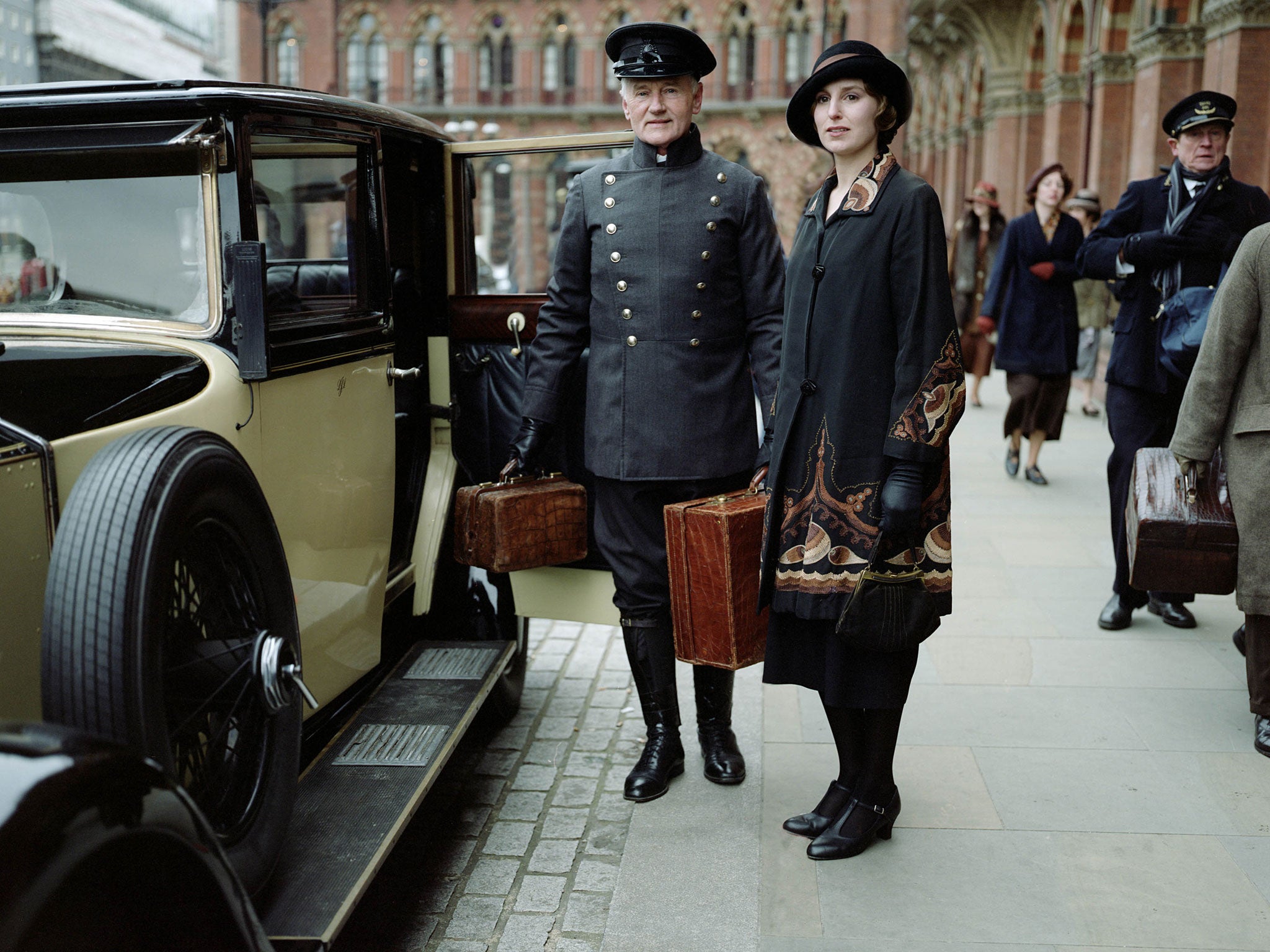Review: Downton Abbey season 4 premiere - A fascinating insight into the quiet violence of the class system
ITV1 9pm: Fourth season lucky, I’ve been converted to this study of class

Downton Abbey was one of those national obsessions I never quite understood: it was the watercooler conversation I was excluded from. But with its return to our TV screens, I give in: the first instalment of Downton’s fourth season justifies its status as an iconic British drama.
The season begins six months after the death of Matthew Crawley (Dan Stevens), killed suddenly in a car crash, leaving his wife Lady Mary in mourning. It is now 1922, and Britain’s post-war boom has abruptly ended. This was a time of mass unemployment and swingeing Government cuts (sound familiar?). Inter-war Britain was an often traumatising period of political upheaval, economic crisis and technological progress. “It’s a changing world,” says a servant to the Dowager Countess, played by the formidable Maggie Smith. “You don’t have to tell me,” she says wistfully. Little of the gritty reality of this early 20th-century austerity creeps into the bubble of Downton Abbey, of course.
The most fascinating scenes reveal the quiet violence of the class system, dictating people’s behaviour against their own instincts. At one point, Mr Carson (Jim Carter), the conservative household butler, cautiously confronts the grieving Lady Mary with advice, knowing that he is stepping outside the expectations of the estate’s pecking order: “I would only be so bold as this if I thought it was for your benefit.” Emotionally conflicted and clearly in need of Mr Carson’s comfort, Lady Mary (Michelle Dockery) avoids engaging with his suggestions by pulling rank: “I’m afraid I may have encouraged the idea you have the right to address me in this way.” The human complexities of the scene are only done justice because of stunning performances from both actors.
There is also the casual humiliation of staff who are unable to speak back. When a waiter’s attempt to serve at lunch is repeatedly sabotaged by a colleague, one of their overlords dismissively tells him: “I hope you’ll soon get back to whatever you were trained to do.” There are also hints at the prevailing sense of women being the mere property of men: this was still six years before all women won the vote. When an excursion is discussed, it is casually said that: “We’re not having the wives!”
There are still hangovers from Victorian Britain, too: there are grim scenes from Ripon Union Workhouse. But this sort of squalor seems an anachronism even in 1920s Britain: the characters themselves mutter that it is like something out of a Dickens novel.
Love is a dominant theme, with secrecy, longing and fear: whether it be a dilemma for Lady Mary’s sister, Lady Edith, or among servants tenderly and hopefully reading Valentine’s Day cards. But all the drama is given a beautifully shot backdrop, and it’s not just the grand grounds of Downton Abbey; St Pancras station has a cameo, too. The music gives a constant sense of drama, even when nothing much is happening.
Downton is a well-performed, beautifully scripted insight into another England. There are fascinating, subtle insights into the impact of class on human relationships. This has the making of a classic that will last for a long time to come.
Join our commenting forum
Join thought-provoking conversations, follow other Independent readers and see their replies
Comments